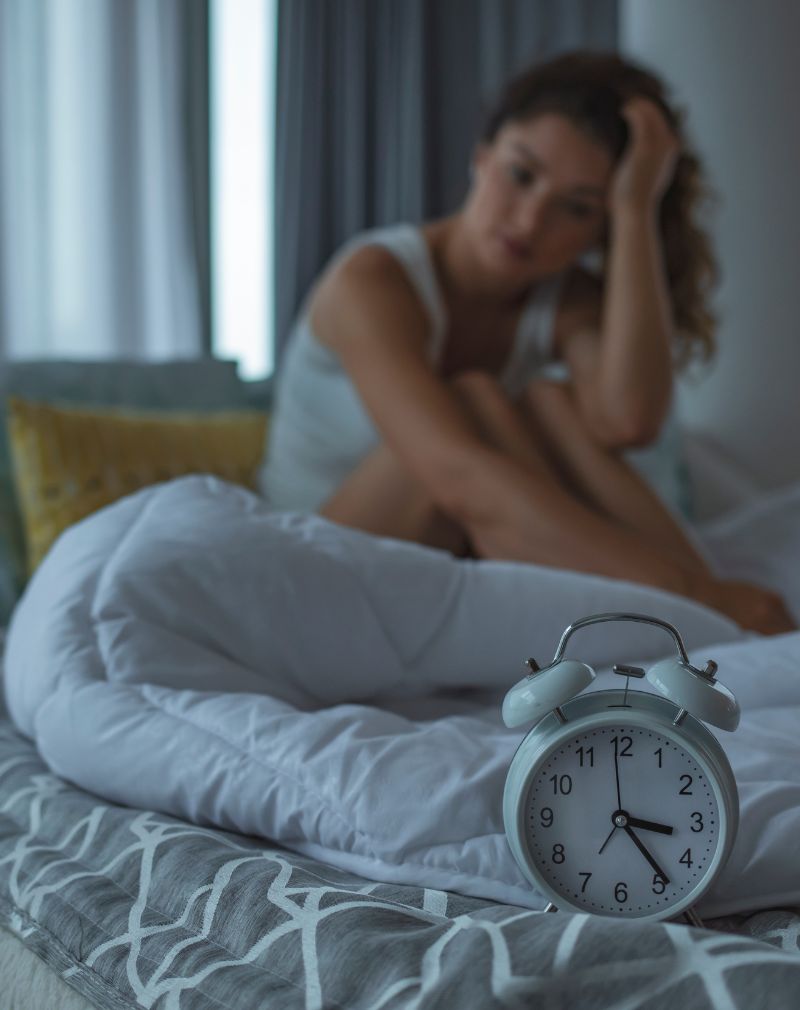Sleep disorders, intricate conditions disrupting normal sleep patterns, stand as significant barriers to achieving restorative sleep, essential for both physical and mental health. They encompass a wide array of issues, ranging from insomnia to sleep apnea and restless leg syndrome, each with unique symptoms and underlying causes. Understanding these disorders is paramount, as it lays the foundation for recognizing their profound impact on an individual’s daily functioning, emotional resilience, and overall life satisfaction. This knowledge is crucial for seeking appropriate interventions and support systems, such as those provided by specialized healthcare providers.
The prevalence of sleep disorders is alarmingly high, with millions worldwide, including residents of Dubai, facing nightly battles for restful sleep. The consequences of such disorders ripple through every aspect of daily life, from diminishing work performance and learning capabilities to straining personal relationships and increasing susceptibility to chronic health conditions. Recognizing the widespread nature of these conditions highlights the urgent need for increased awareness, early detection, and comprehensive treatment strategies, underscoring the critical role of specialized centers like the American Wellness Centre in Dubai Healthcare City, which offers targeted Psychology and Psychiatry Services to address and manage these sleep challenges effectively.
Types of Sleep Disorders
Here’s a list of the types of sleep disorders:
Insomnia
Insomnia is a common sleep disorder where people find it hard to fall asleep, stay asleep, or both. It can lead to feeling tired when you wake up. Many things can cause insomnia, like stress, bad sleep habits, or changes in your environment or work schedule. Symptoms include lying awake for a long time before falling asleep, waking up often during the night, and feeling tired after waking up.
Treating insomnia often starts with changing your daytime and bedtime habits. Creating a comfortable sleep environment, sticking to a regular sleep schedule, and avoiding caffeine and electronics before bed can help. Sometimes, doctors might recommend therapy to deal with thoughts and worries that keep you awake. In some cases, medication may be used for a short time under a doctor’s care.
Sleep Apnea
Sleep apnea is when your breathing stops and starts while you sleep, which can make you feel really tired during the day. It’s not just about snoring loudly; it’s a serious condition that can lead to heart problems and other health issues if not treated. The main types are obstructive, central, and complex sleep apnea, with obstructive being the most common.
To deal with sleep apnea, doctors might suggest lifestyle changes like losing weight or quitting smoking. Using a CPAP machine at night to help keep your airway open is another common treatment. In some cases, surgery might be needed.
Narcolepsy
Narcolepsy is a long-term neurological disorder that impacts the brain’s ability to regulate sleep-wake cycles. People with narcolepsy experience extreme daytime tiredness and sudden sleep attacks, which can happen at any time during usual waking hours. They might also have sleep paralysis or hallucinations when falling asleep or waking up. Managing narcolepsy often involves medications to help control the symptoms and lifestyle adjustments, like short, scheduled naps and maintaining a regular sleep schedule. For personalized guidance and treatment, healthcare facilities like the American Wellness Centre in Dubai Healthcare City provide expert support to individuals facing narcolepsy, helping them manage their symptoms effectively.
Restless Legs Syndrome (RLS) and REM Sleep Behavior Disorder
Restless Legs Syndrome (RLS) causes an uncontrollable urge to move your legs, usually because of an uncomfortable sensation. It typically happens in the evening or nighttime hours when you’re sitting or lying down. Moving eases the unpleasant feeling temporarily. Treatment can include lifestyle changes, such as establishing regular sleep patterns and cutting back on caffeine, and sometimes medication.
REM Sleep Behavior Disorder involves acting out vivid dreams with vocal sounds and sudden, often violent arm and leg movements during REM sleep, the dream phase of sleep. Treatments may involve improving sleep safety and using medications to reduce symptoms. For individuals experiencing these disorders, consulting with healthcare professionals, like those at the American Wellness Centre in Dubai Healthcare City, can provide tailored advice and treatment options to manage symptoms effectively.
We, at American Wellness Centre located in Dubai Healthcare City, understand the complexities of sleep disorders and the impact they have on your life. That’s why we offer specialized psychology and psychiatry treatments tailored to combat sleep disorders. Our team of experts is dedicated to providing personalized care to help you overcome these challenges and achieve restful sleep. Whether you’re dealing with insomnia, sleep apnea, narcolepsy, or other sleep-related issues, we’re here to support you on your journey to better sleep and improved well-being.
The Causes and Risks of Sleeping Disorders
Sleep disorders can be triggered by a variety of causes and risk factors, including both lifestyle choices and environmental influences. Common causes range from stress and irregular sleep schedules to medical conditions like sleep apnea. In Dubai, the fast-paced lifestyle, high stress levels associated with work, and the city’s vibrant night life can disrupt regular sleep patterns. Environmental factors, such as the hot climate affecting room temperatures, can also impact sleep quality.
Sleep disorders significantly increase the risk for several health issues. For instance, chronic sleep deprivation is linked to heart disease, hypertension, and stroke due to increased stress on the cardiovascular system. It can also lead to obesity and type 2 diabetes by affecting hormones that regulate appetite, leading to overeating and reduced insulin sensitivity. Moreover, the risk of accidents rises as poor sleep affects concentration and reaction time. Mental health can suffer too, with increased risks of depression, anxiety, and cognitive decline. Addressing sleep disorders early is key to mitigating these health risks.
Symptoms of Sleeping Disorder
Sleep disorders can manifest through a wide range of symptoms, affecting one’s ability to fall asleep, stay asleep, or maintain a healthy sleep cycle. Here are some of the top symptoms associated with sleeping disorders:
- Difficulty Falling Asleep: Struggling to fall asleep at night is a common symptom of insomnia and other sleep disorders.
- Frequent Wake-ups During the Night: Waking up several times during the night and having trouble going back to sleep can indicate a sleep disorder.
- Feeling Unrefreshed Upon Waking: Even after a full night’s sleep, if you often wake up feeling tired or unrefreshed, it may signal a sleep disorder.
- Daytime Fatigue or Sleepiness: Excessive sleepiness during the day, despite having had the opportunity to sleep at night, is a common symptom of sleep disorders such as sleep apnea and narcolepsy.
- Irritability or Mood Swings: Lack of quality sleep can affect your mood, leading to irritability, anxiety, or depression.
- Frequent Nightmares or Night Terrors: Experiencing frequent nightmares or night terrors can disrupt sleep and may be associated with sleep disorders.
- Snoring or Breathing Pauses During Sleep: Loud snoring and observed pauses in breathing are hallmark symptoms of sleep apnea.
- Restless Legs or Uncomfortable Sensations: The urge to move the legs due to uncomfortable sensations, especially at night, is a symptom of Restless Legs Syndrome (RLS), a type of sleep disorder.
- Experiencing Vivid, Dream-like Experiences While Falling Asleep or Waking Up: People with narcolepsy often experience vivid hallucinations during the transition between sleep and wakefulness.
Impact of Sleep Disorders on Health and Well-being
Physical Health: Sleep disorders do more than just make you feel tired. They can have serious effects on your physical health. Poor sleep can lead to heart disease, high blood pressure, diabetes, and obesity. It messes with your hormones, can weaken your immune system, making you more likely to get sick, and can even shorten your life expectancy.
Mental Health: Sleep isn’t just physical rest; it’s crucial for mental health too. When sleep disorders disrupt your rest, they can lead to problems like depression, anxiety, and stress. They can also affect your memory, concentration, and ability to think clearly. Over time, this takes a toll on your emotional well-being and daily life. Understanding the deep connection between sleep and health highlights the importance of addressing sleep disorders. Proper management and treatment are crucial to improving both physical and mental health outcomes. American Wellness Centre based in Dubai Healthcare City offers Psychiatry and Psychology solutions to help counter and overcome sleeping disorders for good.
Diagnostic Approaches and Tests
To thoroughly diagnose sleep disorders, the process begins with a comprehensive assessment by healthcare professionals, focusing on the individual’s medical history, lifestyle, and specific sleep-related symptoms. This initial step may involve discussing sleep patterns, any known health issues, and lifestyle factors that could influence sleep, such as stress levels and caffeine consumption.
For a more in-depth analysis, sleep studies like polysomnography are conducted in specialized labs. During these overnight studies, various physiological parameters are monitored, including brain waves, oxygen levels in the blood, heart rate, breathing patterns, and eye and leg movements. This comprehensive monitoring allows doctors to observe sleep stages, identify disruptions, and understand the severity of sleep disorders.
Another diagnostic tool, the Multiple Sleep Latency Test (MSLT), assesses how quickly an individual falls asleep in a quiet environment during the day. This test is particularly useful for diagnosing narcolepsy and measuring the degree of daytime sleepiness.
These diagnostic methods combined provide a detailed picture of the individual’s sleep health, enabling healthcare providers to tailor treatment strategies that address the specific type and severity of the sleep disorder.
We, at American Wellness Centre in Dubai Healthcare City, offer advanced treatments and solutions along with the latest machinery to help diagnose and treat sleeping disorders in adults and adolescents alike.
Demystifying Sleep Disorder Myths
In the realm of sleep disorders, misinformation can often obscure the truth, leading to misconceptions about their nature, causes, and treatments. Let’s debunk some common myths surrounding Sleeping Disorders:
- Sleep disorders aren’t connected to other health conditions | Contrary to this belief, sleep disorders often intertwine with other health issues. Conditions such as depression, anxiety, hypertension, and even obesity can either contribute to or exacerbate sleep disorders, highlighting a bidirectional relationship between sleep health and overall well-being.Top of Form
- The older you get, the less sleep you need | While sleep patterns may change with age, the necessity for quality sleep doesn’t diminish significantly. Older adults still require seven to eight hours of sleep for optimal health and functioning, debunking the myth that they need much less sleep.
- Snoring is harmless and common | While many may dismiss snoring as a mere annoyance, it can be a sign of sleep apnea, a condition with potential for serious health complications, including heart attack, stroke, and high blood pressure.
- How long you sleep is the only factor that matters | Quality of sleep is just as important as quantity. Fragmented sleep or numerous awakenings can significantly impact the restorative value of sleep, making uninterrupted sleep crucial for health
- Staying in bed will help you fall asleep eventually | Experts recommend getting out of bed if you’re unable to fall asleep within 20 minutes. Engaging in a quiet activity like reading in a dimly lit area can help signal your body it’s time to sleep, avoiding the association of your bed with wakefulness.
- Alcohol before bed enhances sleep | Although alcohol may initially induce drowsiness, it actually disrupts sleep quality later in the night, affecting the sleep cycle and leading to more frequent awakenings.
- A warm bedroom is ideal for sleep | Cooler bedroom temperatures, around 65 to 68 degrees Fahrenheit, are generally more conducive to good sleep. A cooler environment supports the natural drop in body temperature associated with sleep.
- Sleeping with a light on is inconsequential | Light exposure during sleep can disturb sleep quality and circadian rhythms. A dark sleeping environment is recommended to foster a stable sleep cycle and prevent potential sleep disruptions.
By addressing these myths with factual information, we can foster a more accurate understanding of sleep disorders and their management. This insight not only guides individuals toward healthier sleep practices but also encourages seeking professional advice when sleep issues persist. At American Wellness Centre we have qualified and trained Psychologists and Psychiatrists that help you identify, diagnose and treat your Sleeping Disorders.
Prevention Tips and Healthy Sleep Habits
Contrary to what you hear online, a lot of minor sleeping issues can go away by following some simple tips, allowing you to feel more energized, awake and happy when it’s time to get up. Creating a healthy sleep environment and routine is crucial for preventing sleep disorders and ensuring quality sleep. Here are comprehensive tips from our experts at American Wellness Centre in Dubai Healthcare City:
- Maintain a Consistent Sleep Schedule: Go to bed and wake up at the same time every day, even on weekends. This regularity helps reinforce your body’s sleep-wake cycle.
- Optimize Your Sleep Environment: Your bedroom should be cool, dark, and quiet. Consider using room-darkening shades, earplugs, or white noise machines if necessary. Remove electronic devices from the bedroom to avoid disruptions.
- Mind Your Diet and Exercise: Avoid large meals, caffeine, and alcohol before bedtime as they can interfere with sleep. Include physical activity in your daily routine, but not too close to bedtime, to promote better sleep.
- Invest in Comfortable Bedding: A supportive mattress and pillows, along with bedding that maintains a comfortable temperature, can make a significant difference in your sleep quality.
- Limit Naps: If you must nap, keep it short—and avoid napping late in the day to not disrupt nighttime sleep.
- Prepare for Sleep: Engage in relaxing activities before bed, such as reading, taking a bath, or practicing relaxation techniques. This helps signal to your body that it’s time to wind down.
- Address Worries and Stress: Try to manage stress and worries before bedtime. Writing down your concerns or practicing stress-relief techniques can help clear your mind for a better night’s sleep.
- Expose Yourself to Natural Light: Daylight exposure is essential for regulating your sleep-wake cycle. Try to get outside or let natural light in during the day.
- Create a Pre-Sleep Routine: Following the same steps each night can prepare your body and mind for sleep. This could include changing into pajamas, brushing your teeth, and other calming activities.
- Use the Bed Only for Sleep and Intimacy: This helps strengthen the association between your bed and sleep. If you can’t fall asleep within 20 minutes, get up and do something relaxing until you feel sleepy.
By incorporating these habits into your daily routine, you can significantly improve your sleep quality and reduce the risk of developing a severe sleep disorder. If you still feel that you require medical assistance then look no other than our esteemed clinic built in the heart of Dubai Healthcare City.
Next Steps
Managing sleep disorders involves understanding their types and causes, adopting healthy sleep habits, and knowing when to seek professional help. Consistency in sleep schedules, creating a conducive sleep environment, mindful eating and exercising, and stress management are key practices for improving sleep quality. It’s important to recognize the signs of sleep disorders and address them early to prevent further health complications.
If sleep issues persist despite adopting these strategies, it may be time to consult with a healthcare professional. We, at American Wellness Center located in Dubai Healthcare City, offer specialized psychology and psychiatry services tailored to diagnose and treat various sleep disorders. Our team of expert psychologists and psychiatrists are dedicated to providing personalized care to help you achieve restful sleep and improve your overall well-being. Don’t hesitate to reach out if you’re struggling with sleep — it’s a crucial step towards better health.



